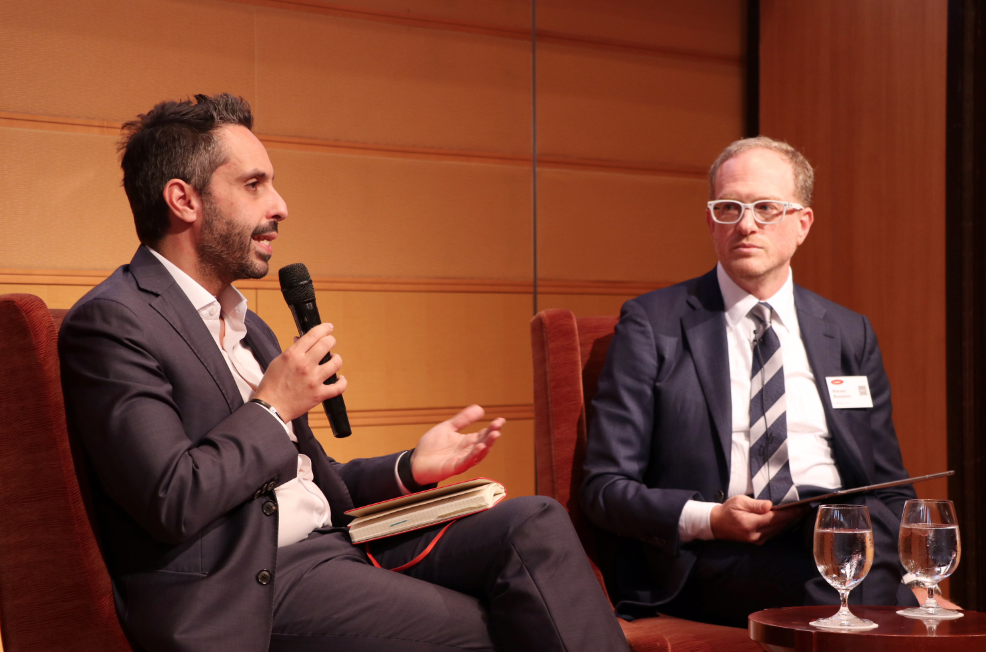[:en]Change Discipline, Not Management[:]

[:en]The currency of discipline is choice, and that choice is yours to make. Change management is ostensibly a practice to help people in an organization make a transition as a result of a disruptive organization change. However, disruption need not be disruptive if disruption is part of your discipline.
[:en]The Seller is God[:ja]売り手は神である[:]

[:en]When a salesperson tells me, “The way to make a customer happy is to treat them as God!” usually he or she means acquiescing to and fulfilling every demand and whim. Nothing could be further from the truth. No, the customer is not God, nor does the customer ever really want to be. Rather, it is the salesperson that can be a god to the customer if he or she does things right.
[:en]Blinkered by Targets[:ja]ターゲットばかりに固執することの危険性[:]

[:en]The best way to achieve performance targets is to ignore them. It’s improving performance form that counts.
[:en]The World is Given, But The Frame is Yours[:ja]この世界をどう切り取るかは、あなた次第[:]

[:en]The world is given, but in photography, you frame the world as you want it. The photograph is your own. The leader of a business does much the same. You take the world as you want it. The frame is of your own choosing.
[:en]Campaigns Don’t Shape Brands[:ja]ブランドとはキャンペーンによって形作られるものではない[:]

[:en]Campaigns don’t shape brands. Leaders do. Campaigns merely project to the outside world the brand as perceived by the people inside your company, whether that brand is how you like it or not. Dissonance will cause any branding campaign to fail, no matter what you do.
[:en]Sense, Not Sensitivity[:ja]文化に敏感になることではなく、文化センスメイキングが大切[:]

[:en]The greatest impediment to success in international business is cultural sensitivity. Yes, that’s right. Now take a moment to vent your outrage if you need to, and bear with me. It is not cultural sensitivity but rather cultural sense-making that you want, and these are not the same thing. Don’t get me wrong. I am no xenophobe. It is good to make yourself an expert in a foreign language or another country’s culture. However, there is a difference between using your expertise to adapt to the culture around you, as opposed to changing it.
[:en]Japan’s Generous Paternity Leave[:ja]日本の育児休暇の実態[:]

[:en]When a new father asks for paternity leave, a manager can become defensive, even though paternity leave as stipulated by Japanese government regulation is one of the most generous in the world, with up to a year’s leave if desired. Government regulation has achieved nothing in terms of healthy work style behaviors because regulation is not the root cause of excesses. Whether excessive overtime or forgoing paternity leave, the root cause is never because of government regulation or company policy. The root cause is always a deficit of leadership capability.
[:en]Identify Cause. Never Presume. [:ja]大切なのは原因を突き止めること。仮定はすべからず。[:]

[:en] The CEO of a well-known US company in Japan contacted me recently to ask whether I thought flatter organizational structures are better than more hierarchical ones. He learned that vital information from the ranks was not getting to him fast enough and thought that a flatter structure might resolve the problem. He was, in fact, asking the wrong question, because his question presumes cause is organizational structure, whereas it might not be.
Mitsubishi vs. Japanese Culture
[:en] In light of the recent Mitsubishi scandal, Bloomberg invited me back to discuss Japanese corporate culture and whether or not Japan is to blame for the recent scandal. You can watch our discussion in the video above. If you’d prefer to read this interview, the following transcript has been provided by Bloomberg:
[:en]Conversation with Barilla Japan CEO [:ja]バリラジャパンCEOアントニー・ストリアネーゼから学んだこと[:]

[:en]I conducted an onstage conversation with Barilla Japan CEO, Antony Strianese. Here are my takeaways.

